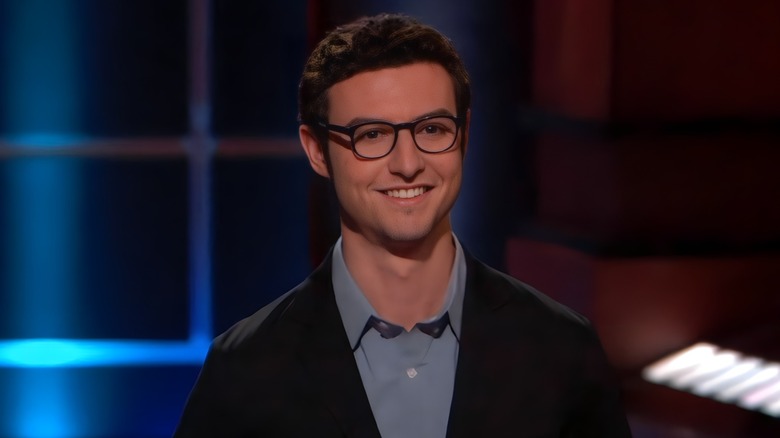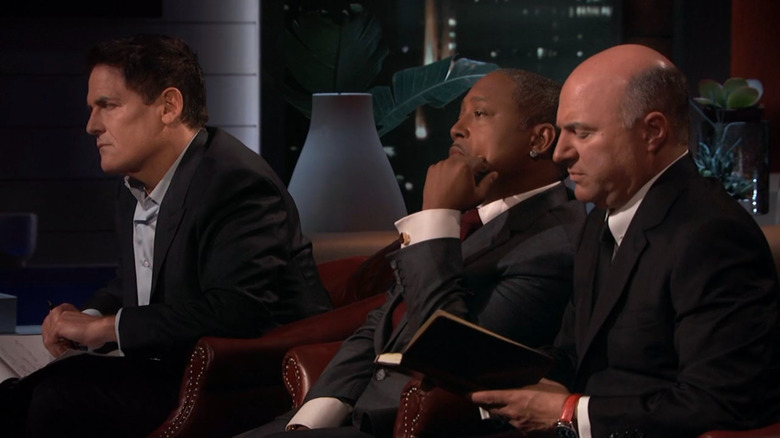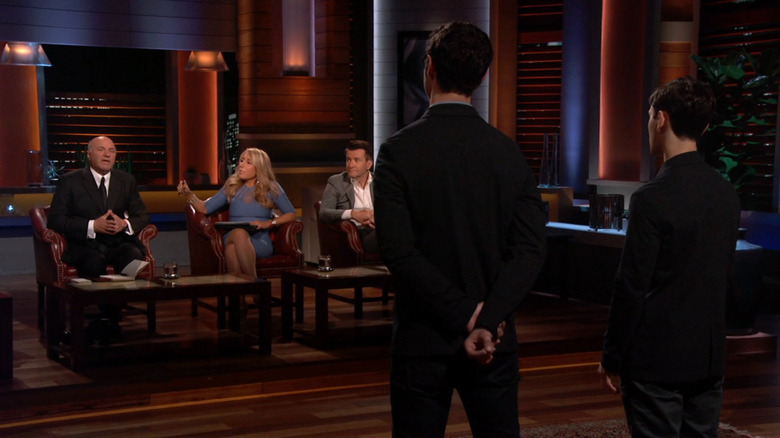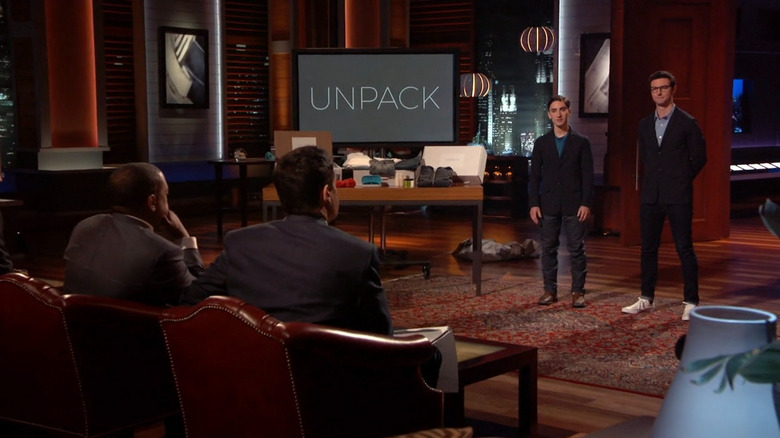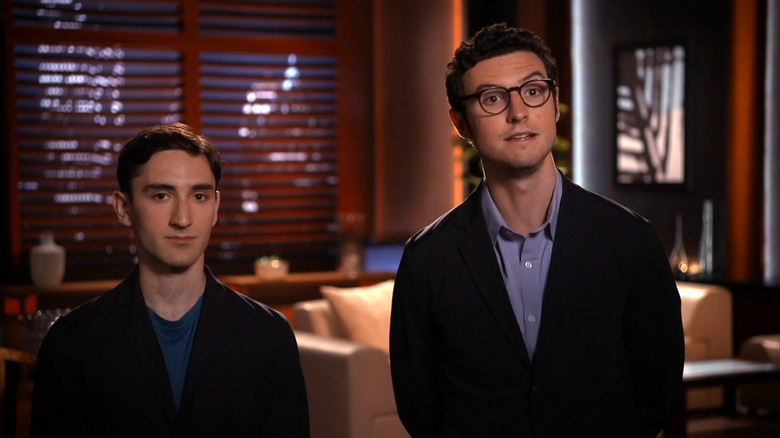Whatever Happened To UnPack After Shark Tank?
Few people relish packing for travel, but is it a big enough problem to warrant a dedicated and relatively revolutionary service?
Entrepreneurs Aaron Listov and Andrew Zahornacky thought so when they appeared on the ABC reality investing program "Shark Tank" during Season 8. Their company, unPack, sought to cut down on bag-check costs and travel anxieties by allowing customers to rent clothing online and have it delivered to their destination in a packed suitcase. From $20 per day, travelers could pick out various used clothing options specifically tailored to their personal style and size preferences. After their trip comes to an end, they leave the suitcase with hotel reception to be returned to unPack, who subsequently wash the clothing for the next customer.
As far as service models go, it's definitely outside the box — though some of the best "Shark Tank" ideas often are. It was ultimately up to the panel of celebrity investors to determine if unPack would be worth the trip.
unPack was unsuccessful
Unfortunately, the only thing more inconsistent than airline baggage checks was unPack's "Shark Tank" pitch. The initial push — an ill-conceived, rehearsed skit between Aaron Listov and Andrew Zahornacky showcasing a potential need for the service — is perfectly inoffensive, if a bit corny and vague for a company seeking a $500,000 minimum investment (in fairness, this was in exchange for at least 40% of the company).
However, once the sharks begin asking questions, the unPack concept quickly falls apart. The entrepreneurs' claims that unPack could save travelers from checked bag fees and provide them with peace of mind regarding their wardrobe don't hold up to much scrutiny, and it certainly doesn't help that the service had only been up and running for six months.
Though Mark Cuban offers some guidance for viable pivots for unPack (including suggesting a name change), he is the first to go out. The rest of the Sharks soon follow, largely citing a lack of faith in the basic concept.
unPack wasn't tailored for Shark Tank success
Everyone wants a "Shark Tank" deal. With the exception of so-called "Gold Diggers," no entrepreneur goes through the rigorous and potentially humiliating process of pitching their product on national television solely for free advertising (especially since the rush of publicity can very easily backfire, as we saw in the case of Amber). However, even those who fail to secure a deal may still take advantage of the "Shark Tank" Effect — unless they're selling a service, like unPack.
Novel services like unPack already face an uphill battle on the show, having to convince the harsh panel what they offer will capture consumers in the same way a tangible product will. This difficulty extends to the realization of a potential post-show revenue bump. While viewers might be inclined to take a chance and order a $15 product that seems useful despite being dismissed by the Tank, they likely won't rush to integrate unPack into their upcoming travel plans — assuming they even have travel plans in the first place.
What's more, unPack could only be hired by those traveling to New York City. With such a relatively small scope of potential customers, unPack wasn't set up to take advantage of the biggest advertising and education opportunity they'd ever see.
Can you pay for unPack today?
As of writing, it's difficult to tell if unPack is still in business or not — but its prospects don't look great. Though the company has maintained its website and domain, the page offers little information about its current operations and doesn't possess the capability to accept new orders. Whether this indicates that unPack is out of business entirely or that it's simply strategically dormant, we can't say for sure.
However, based on Aaron Liskov's employment updates on LinkedIn, he seemingly is no longer involved in unPack — whatever state it's currently in. He left the company in 2017 after just under two years of service. Considering Andrew Zahornacky also lists his exit date within the same year, it's probably safe to say that unPack has closed its doors for good (though that doesn't explain how or why the website has been maintained years afterward).
What are Aaron Liskov and Andrew Zahornacky doing now?
After leaving (or dissolving) unPack in August 2017, Aaron Liskov's employment history is surprisingly sparse. He took a part-time position as a writing fellow at the Harlem Children's Zone in New York City, where — in addition to teaching basic writing workshops covering fundamentals such as grammar, structure, and essay planning — he "led reading tutorials for first-generation college students on social justice" (as he writes on his LinkedIn profile). He left this position in 2019. A summer apprenticeship at the legal tech firm Fenwick & West is also listed, which he participated in from 2021 to 2022.
Meanwhile, Andrew Zahornacky has kept very busy since his time with unPack ended. In July 2017, he took an associate director of strategy role at the ad agency Hearts & Sciences and was promoted to director after less than six months. He left in 2018 to join public relations firm Edelman as vice president of strategy. That same year, he founded another company — a luxury refillable hand sanitizer brand called Noshinku. A single vessel costs $12, while refills cost $25.
